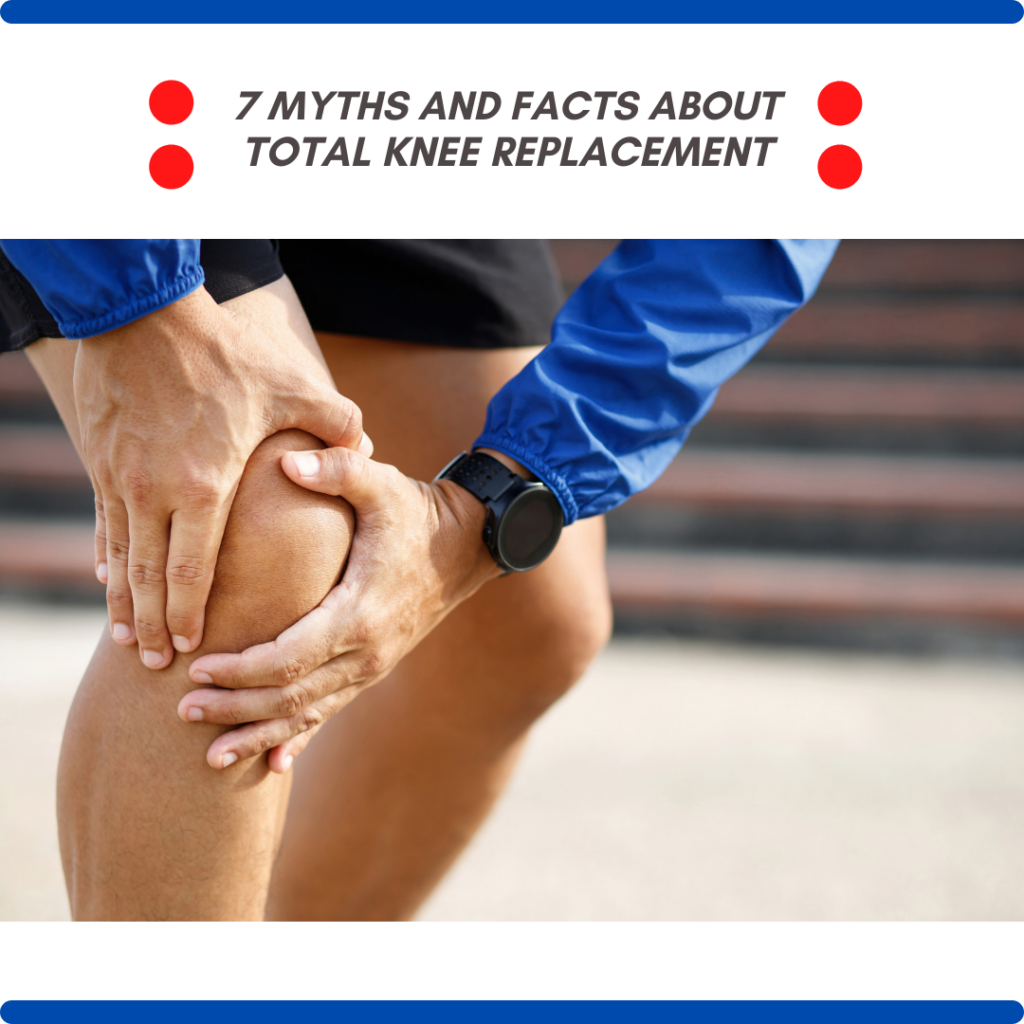Myth 1: “I should postpone knee replacement surgery as long as possible.”
Fact: This is incorrect! It is unnecessary to wait until the discomfort gets unbearable before having surgery. The extended life of joint replacements, on the other hand, allows people to consider surgery at a younger age (if required). Osteoarthritis is a degenerative condition that causes the joint surface to deteriorate and the structure of the bones around the knees to change. Waiting for surgery and postponing it unnecessarily makes the surgeon’s job more difficult, and it causes patients’ health to worsen over time, increasing the risk of surgery-related problems.
Myth 2: “I should keep taking my medications as long as possible to avoid having to get a knee replacement.”
Fact: Painkillers only provide symptomatic relief for a short time, and long-term use is associated with major adverse effects such as renal failure and peptic ulcers. Advanced arthritis necessitates surgery and cannot be treated with medications. Several rheumatoid arthritis patients require knee replacement at an early age. Because of technological obstacles, repairing a severely injured knee may diminish the longevity of the restored joint.
Myth 3. “I’m Too Old For Surgery”
Fact – Having surgery at any age is not a contradiction. If clinically fit, older adults can have total knee replacement surgery at any age. Even at the age of 87, we have patients who have had knee replacement surgery and enjoy life following the procedure.
Myth 4: Knee replacement surgery is extremely painful. In the postoperative period, there is a lot of pain.
Fact – Modern pain management, such as a multimodal approach, guarantees that the patient is pain-free during surgery and recovers quickly.
Myth 5: Knee replacement prevents you from driving.
Fact – Once again, this is a total myth. After knee surgery, driving is a lot simpler. Within 6-8 weeks of surgery, most patients can drive.
Myth 6: It Takes Months To Recover From A Knee Replacement.
Fact – Patients become independent for going to the toilet after 24-48 hours following the operation. By this period, weight-bearing and knee bending are acceptable. Patients can engage in outdoor social activities after around three weeks. Ladies can enter the kitchen and begin preparing food as soon as four weeks after surgery. At six weeks, most patients can return to work.
Myth 7: “Because I’m obese, I won’t be able to get knee replacement surgery.”
Fact – Knee replacement surgery can be performed effectively in obese patients. The study demonstrates comparable results compared to ordinary weight people; however, the surgery takes more experience and particular approaches. Patients may wait longer than necessary in the hopes of losing weight before surgery. In reality, losing weight with a painful arthritic joint is difficult because the patient is less mobile. On the contrary, several of our patients lost weight following knee replacement because they could participate in brisk walking and exercise programs.

